NEWS
NEWS
The Tokyo Foundation Participated in an International Conference on Democracy in Uzbekistan
Participation in an International Conference
On September 19, 2025, The Tokyo Foundation received an invitation from The Center for Analysis of Democratic Processes (CADP), an Uzbek government-affiliated think tank, and participated in the "International Conference on 'The Role of Civil Society in Strengthening Democracy in Uzbekistan: Global Challenges and Prospects'" held in Tashkent, the capital of Uzbekistan. This event was held in observance of "International Democracy Day" on September 15, established by the United Nations with the aim of promoting and maintaining democratic principles. In Session 3, "Interethnic Harmony and Inclusive Society: the Spiritual Path of New Uzbekistan," Executive Director Suzuki co-facilitated alongside an Uzbek senator and spoke about the importance of an inclusive society in Japan.
The conference discussed the need to carefully convey the significance of democratization to citizens and encourage understanding, provide opportunities for open dialogue and participation for civil society, strengthen legal frameworks and reforms, improve governance, enhance the capacity of civil society and NGOs, strengthen digitalization of systems, and the importance of international dialogue through other countries and international organizations, among other topics, for advancing democracy in Uzbekistan, which gained independence in 1991. In addition to representatives from Uzbek government agencies, researchers, and civil society organizations, think tanks, research institutes, and scholars from countries such as Japan (including our foundation), Germany, Turkey, Sweden, Switzerland, Poland, Azerbaijan, and Kazakhstan participated. Participants from international organizations such as UNDP (United Nations Development Programme) and OSCE (Organization for Security and Co-operation in Europe) also attended, making it an excellent opportunity to reaffirm the shared value that people's participation in politics through democratization leads to national stability, economic growth, and the prosperity of society as a whole.
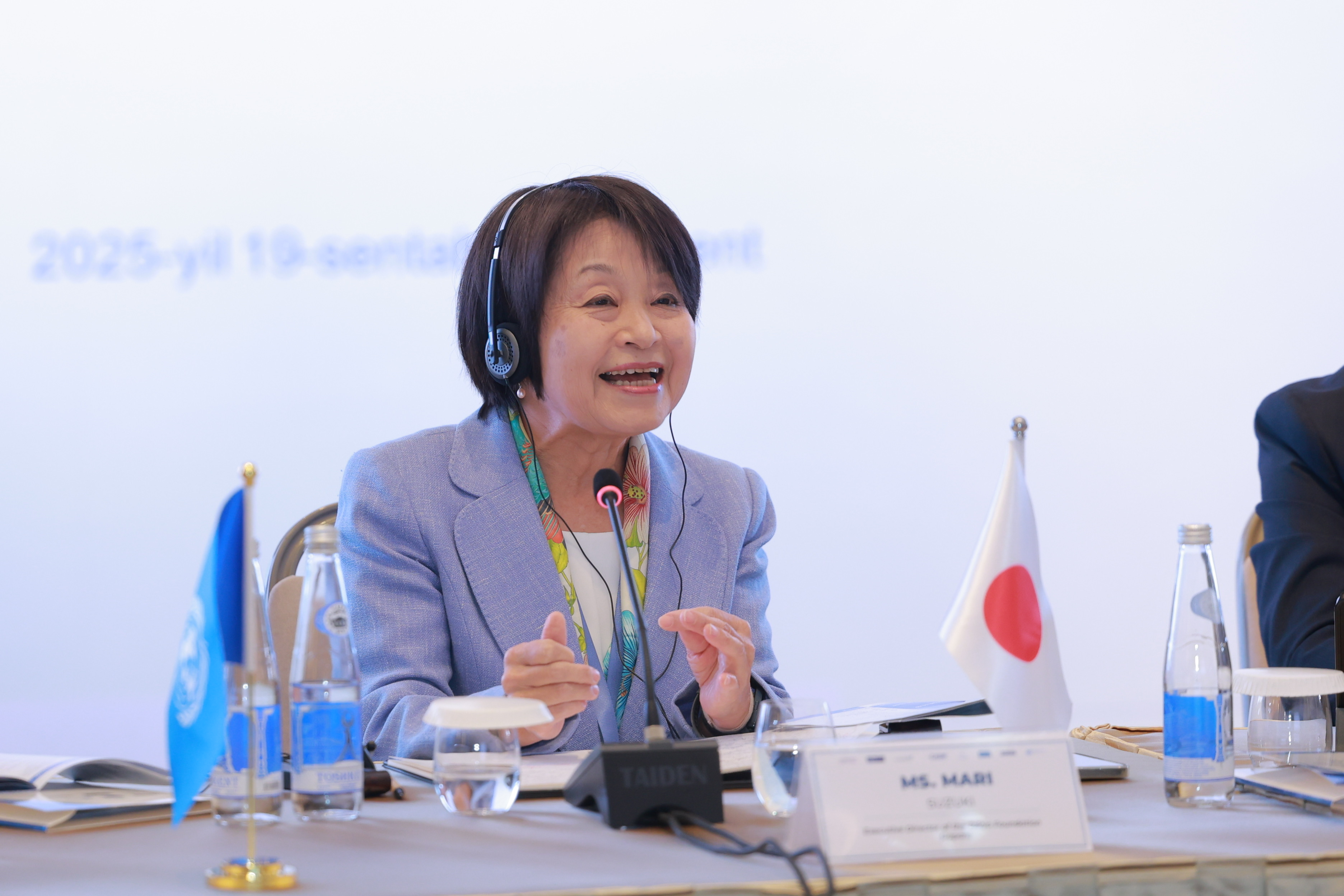 Executive Director Mari Suzuki serving as a moderator.
Executive Director Mari Suzuki serving as a moderator.
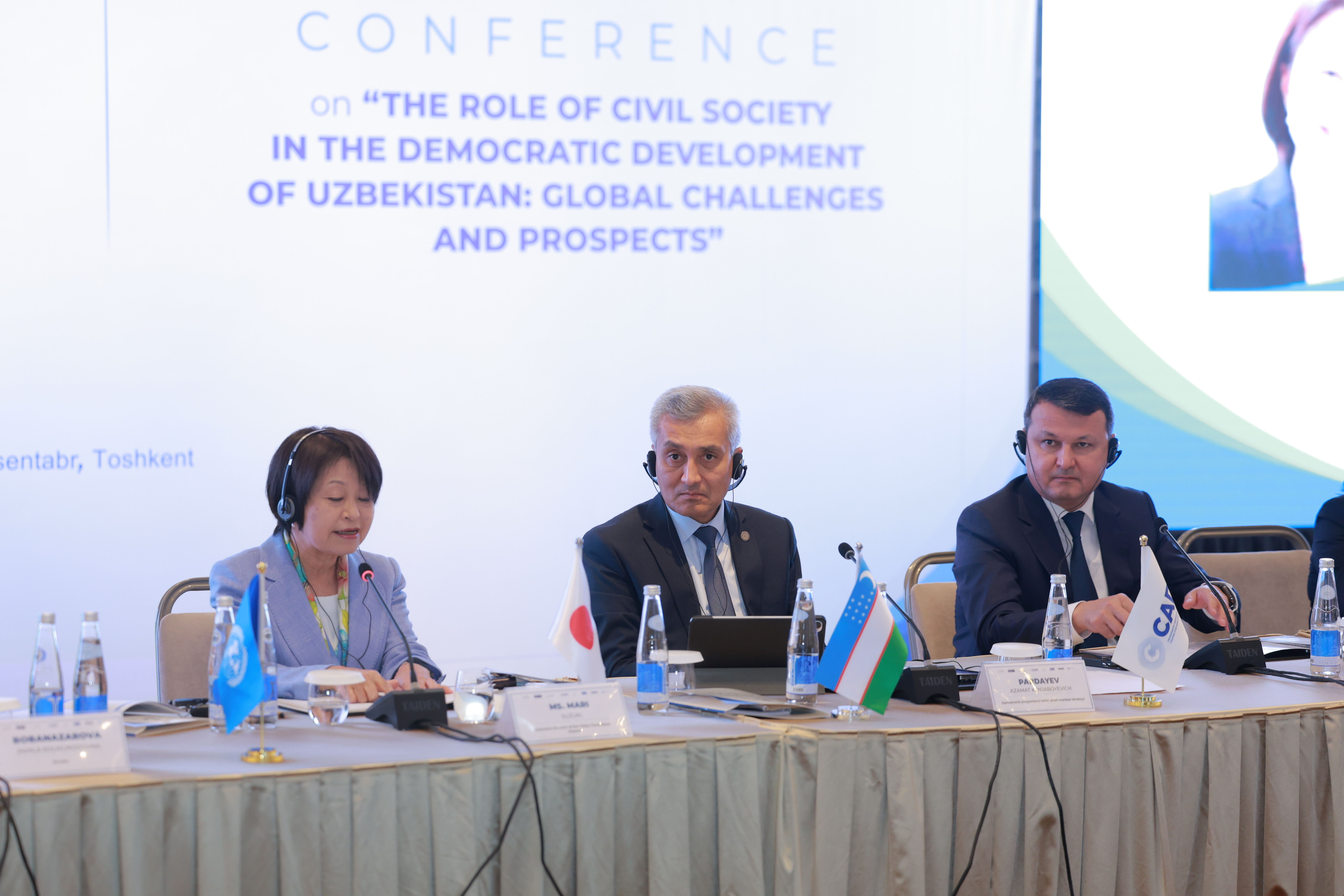
Left: Mari Suzuki, Executive Director, the Tokyo Foundation. Center: Azamat Pardaev, CADP Director.
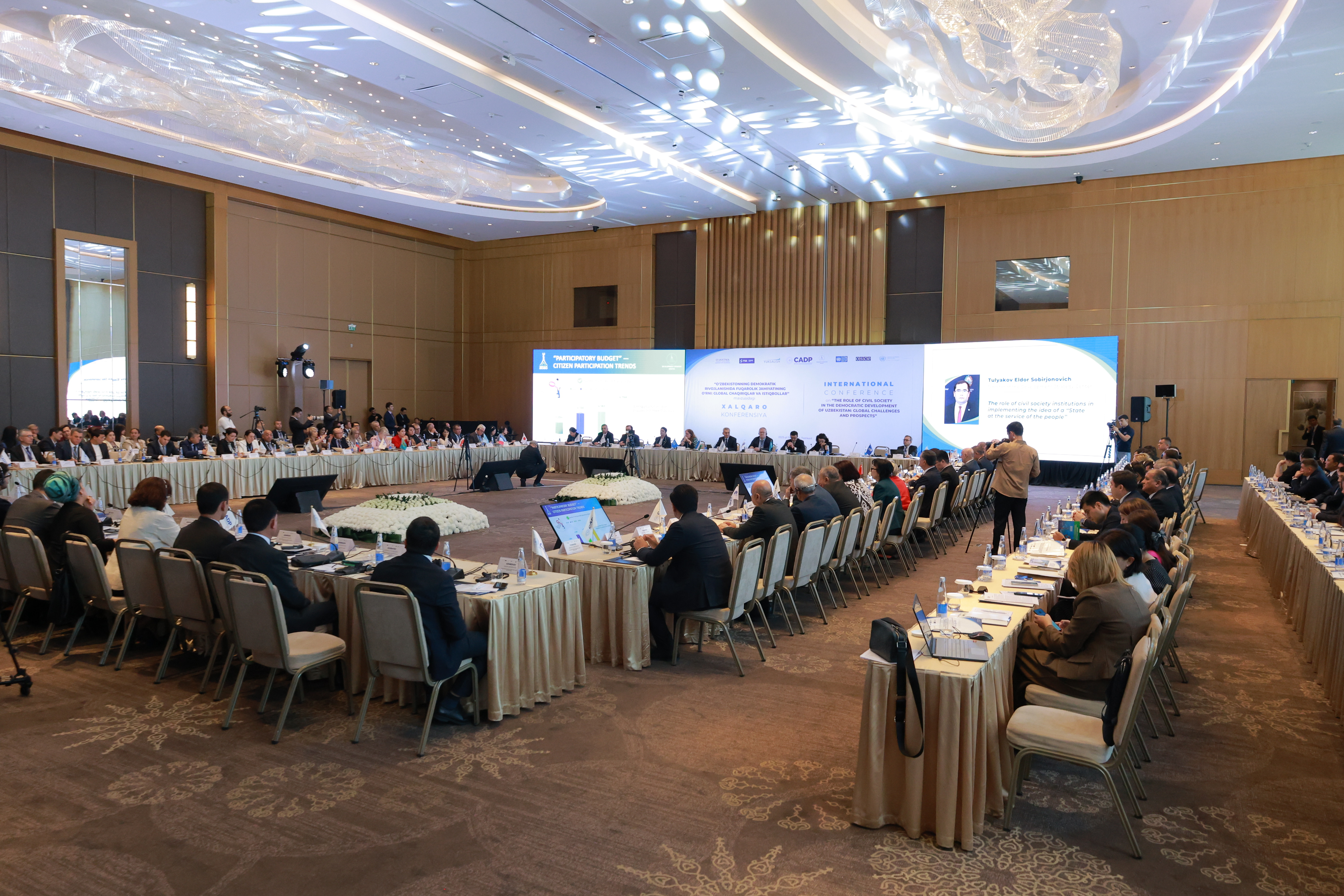
A view of the conference venue.
Visit to Tashkent
Tashkent is a multi-ethnic city rich in various ethnic groups and cultures, including Uzbek, Russian, and Korean. While the old city, which retains its historical atmosphere, is dotted with Islamic architecture from the Silk Road era, the new city, centered around Amir Temur Square, is lined with skyscrapers, and urban development is progressing rapidly.
A familiar spot for Japanese people is the "Alisher Navoi Opera and Ballet Theatre." This theater is known for having been built by 457 Japanese prisoners of war who were taken by the former Soviet Union after World War II and interned here. When the Tashkent earthquake struck in 1966, only the Navoi Theatre remained intact, which led to the appreciation of Japanese technical skill and workmanship in construction, fostering pro-Japanese sentiment. It is still used today as a venue for opera and ballet, and on the day of our visit, we were able to see the beautiful hand-carved hall inside.
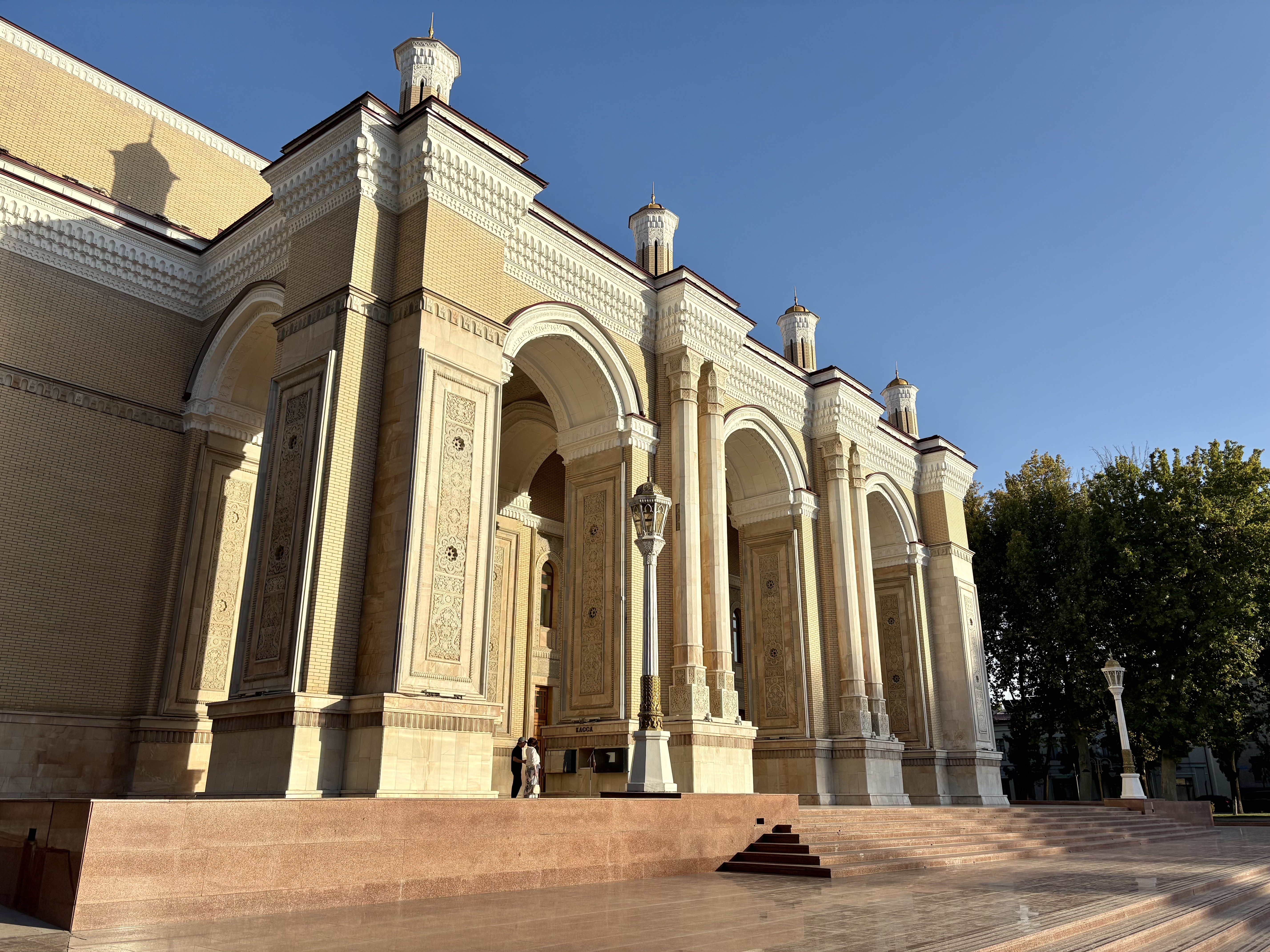
Alisher Navoi Opera and Ballet Theatre
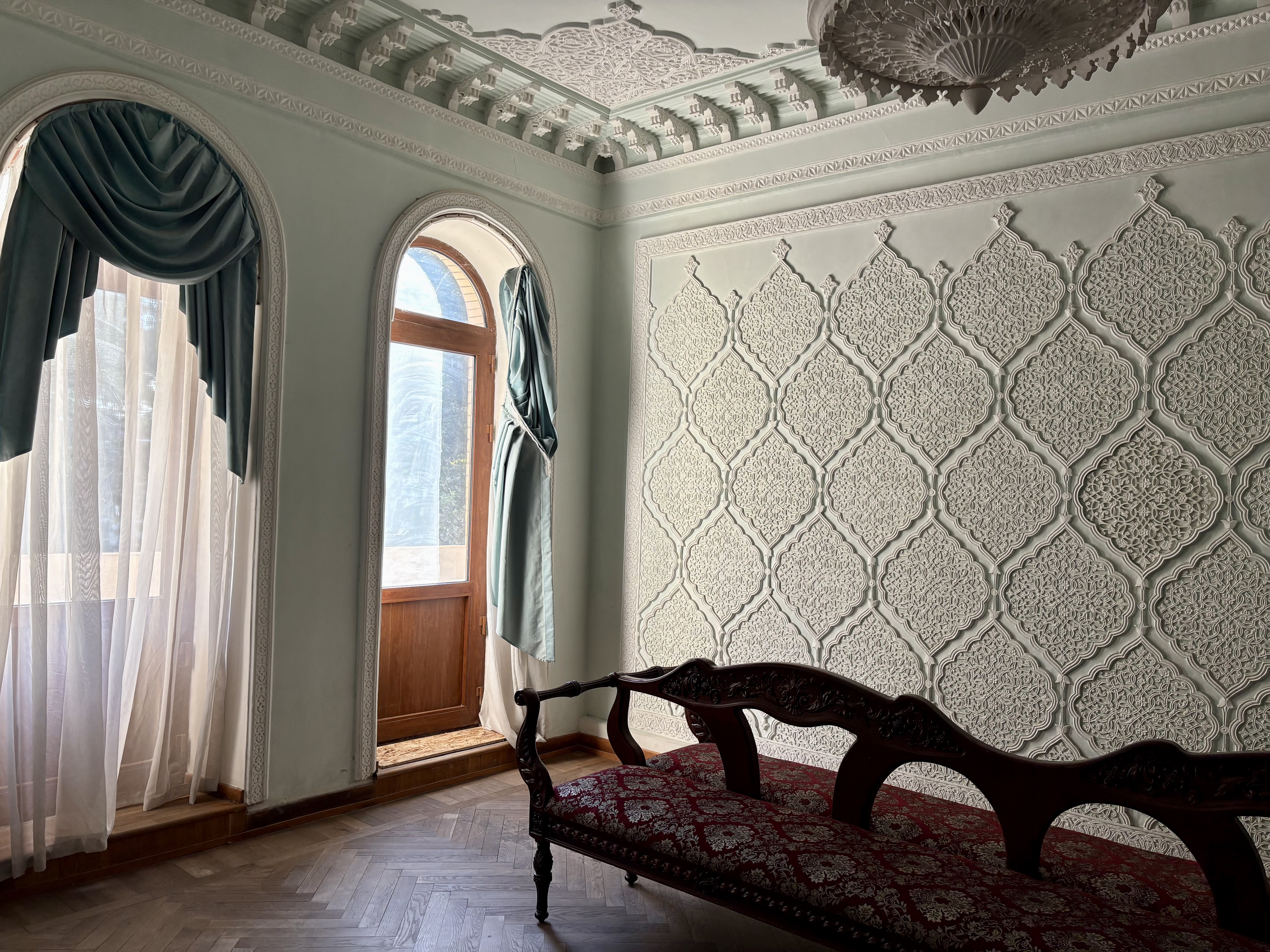
Hand-carved wall decorations featuring motifs from 6 regions (Tashkent, Samarkand, Bukhara, etc.)
We also visited the "Memorial Park to the Victims of Political Repression" located in the city center. A monument was erected in 2000 to prevent the history of those who became victims of political repression during the former Russian Empire and Soviet era for the sake of national independence from fading. It is said that 7,000 civilian lives were lost to repression in this area. Today, the surroundings have become a beautiful park, with an adjacent museum that tells the history.
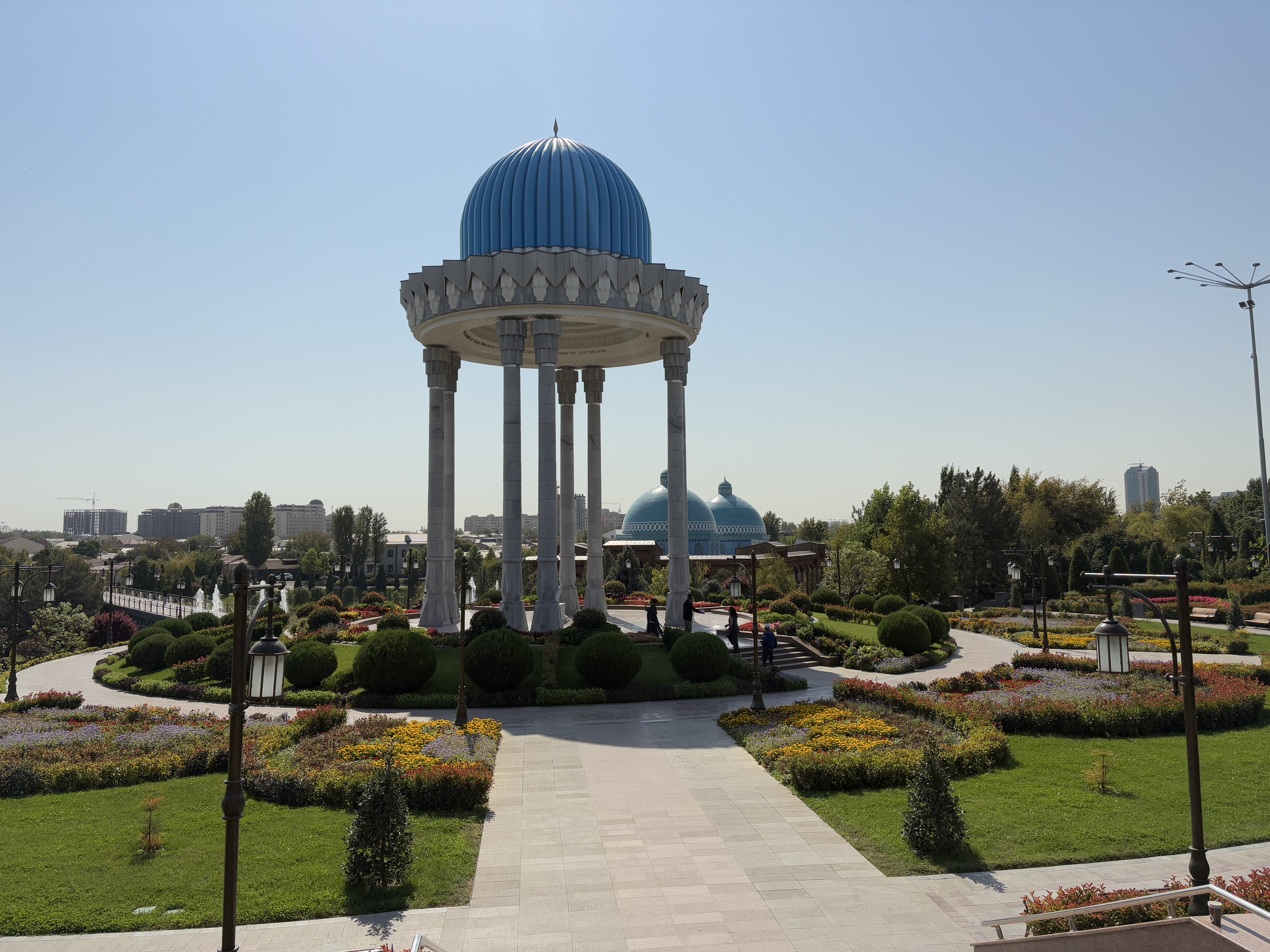
Memorial Park to the Victims of Political Repression. The two blue domes in the background are the museum.
Visit to Samarkand
Through the arrangements of CADP, the organizer of the international conference, we visited the ancient city of Samarkand, known as the "Blue City," along with international guests who participated in the conference. First, we visited the "Gur-e Amir Mausoleum," the final resting place of Amir Temur, the great hero who founded the Timurid Empire, and his family. The blue-tiled dome is beautiful, and the delicate patterns and magnificent scale make one ponder Temur's immense power. From "Registan Square," the political, economic, and cultural center, we overlooked the grand madrasahs (Islamic schools) of Ulugh Beg Madrasah, Tilya-Kori Madrasah, and Sher-Dor Madrasah, and were overwhelmed by the beautiful and vibrant gold-leafed ceilings and the splendor of the prayer halls.
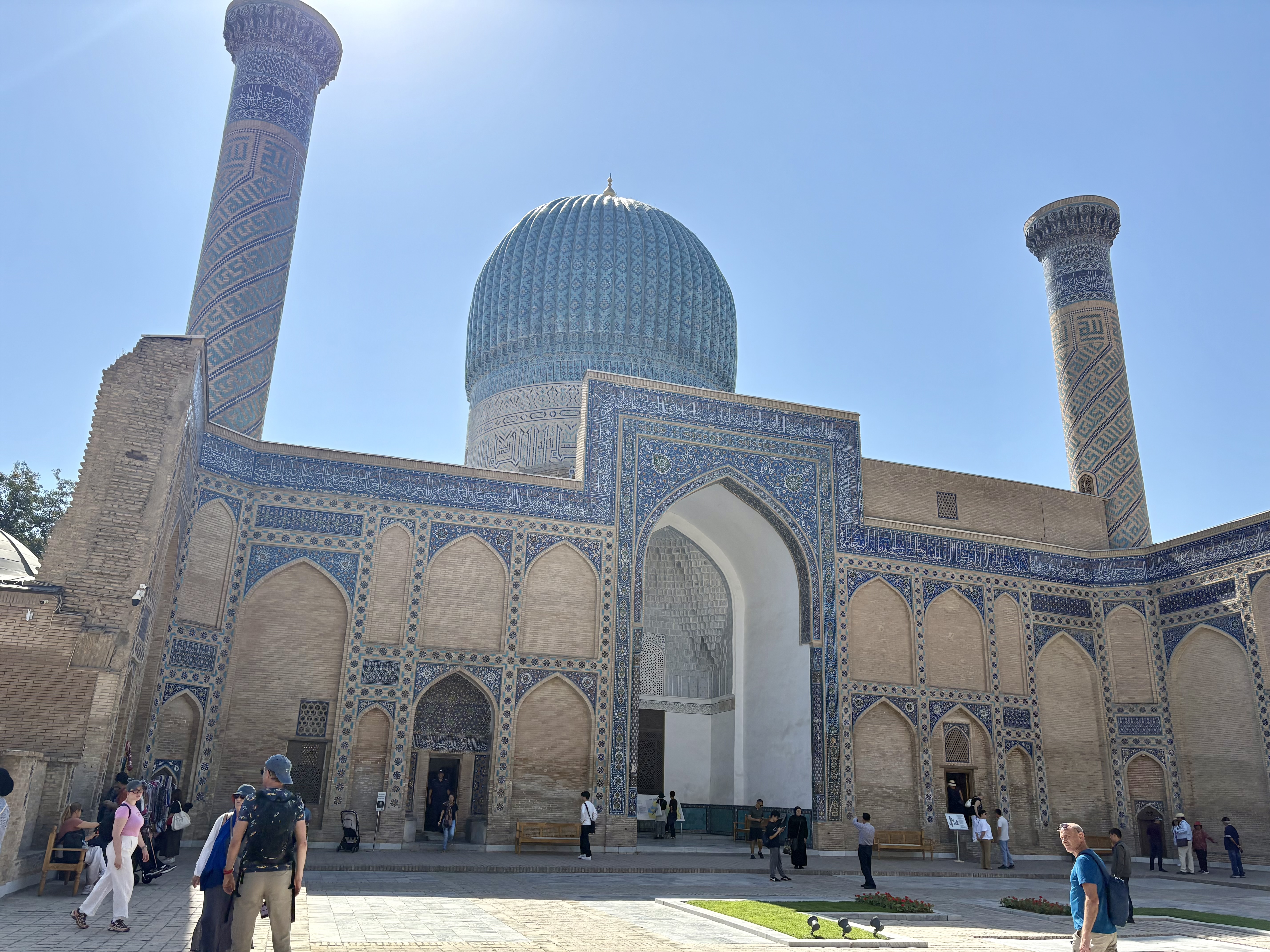
Gur-e Amir Mausoleum
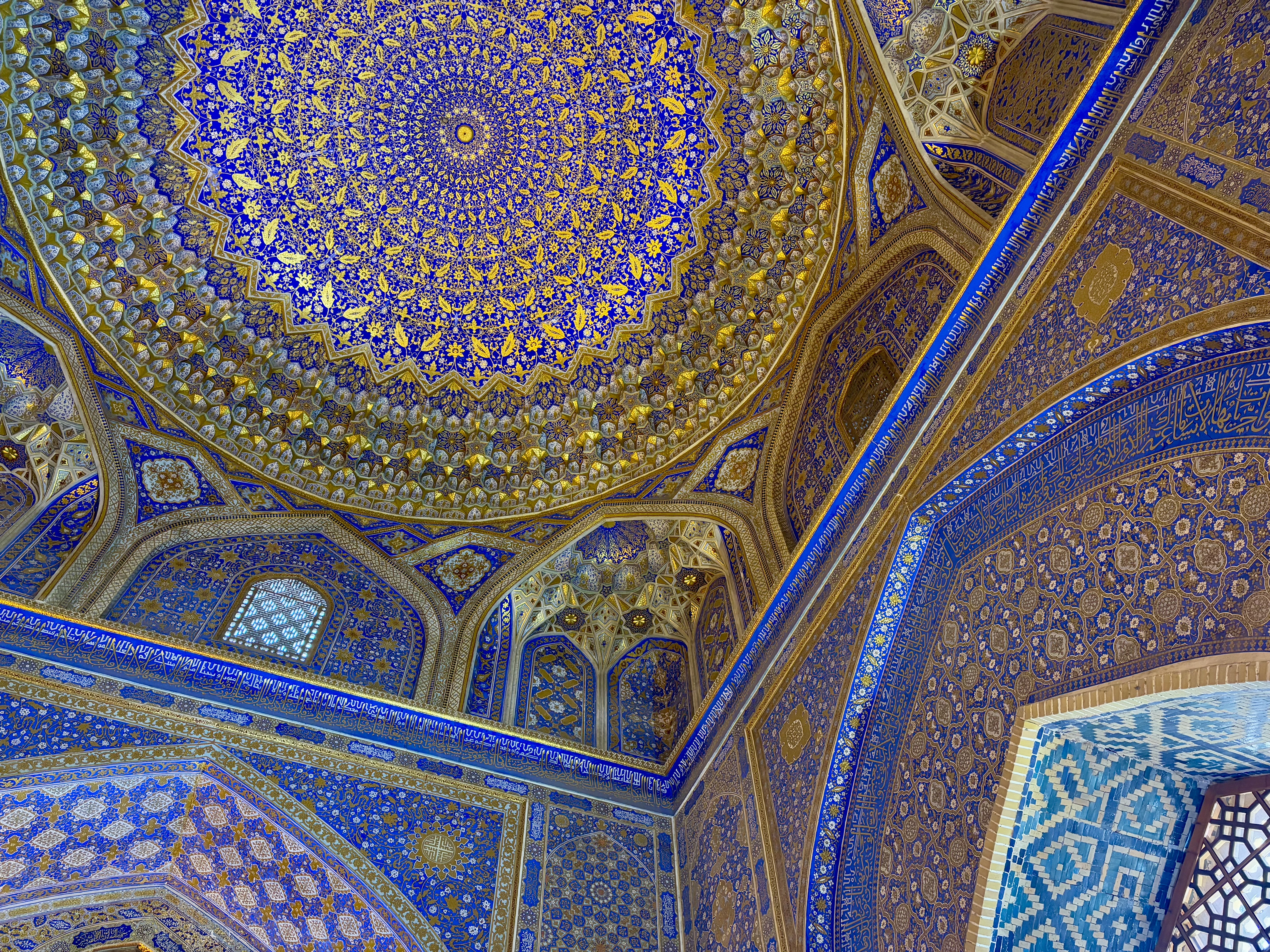 Tilya-Kori Madrasah
Tilya-Kori Madrasah
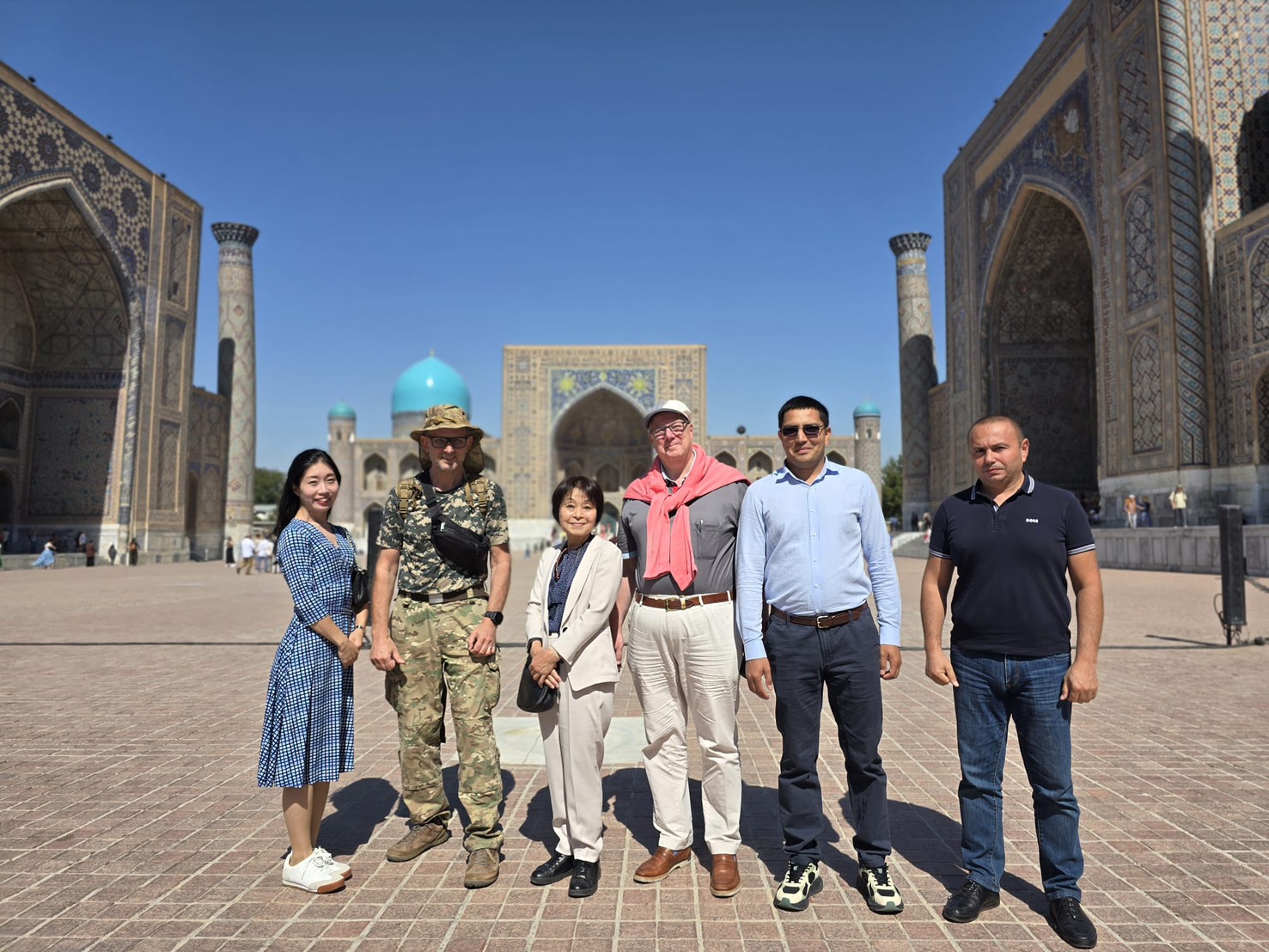
At Registan Square, with conference participants from various countries.
***
Through our participation in this international conference and visit to Uzbekistan, we reaffirmed the common value of democracy and felt the commonalities between Japan and Uzbekistan, which emphasize harmony. We also recognized similarities to the issues we face in Japan regarding foreigners, such as how to build an inclusive society in a multi-ethnic nation with people of different cultural backgrounds and customs. The Tokyo Foundation will continue to exchange opinions and collaborate with domestic and international stakeholders to solve social issues.
Finally, we extend our sincere gratitude to CADP for inviting us to this international conference and for helping us promote our understanding of Uzbek culture and history through various visits.
Click here for more information about CADP:
https://cadp.uz/en

INQUIRIES
Click on the link below to contact an expert or submit a question.